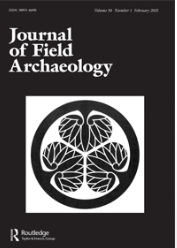Settlement Patterns and Built Environment at the Archaeological Site of Yalahau, Yucatan
Ricardo Antorcha-Pedemonte, Lane F. Fargher-Navarro, Iziar Martínez Rojo, and Cuauhtémoc A. Moreno Cabrera.

Journal of Field Archaeology, 1–14.
https://doi.org/10.1080/00934690.2024.2404292
Abstract
The Parque Estatal de Yalahau Project is a multidisciplinary effort combining archaeology, paleoecology, and historical ecology. The initial analysis focuses on settlement patterns within the Protected Natural Area of Parque Estatal de Yalahau-Yucatan, Mexico. The research uses a conceptual framework integrating humans, non-human species, and geological/climatic forces into a holistic, historical landscape approach, where humans shaped and symbolically interpreted their surroundings, leaving tangible impacts. The study situates findings within the Maya region, contributing to the growing recognition that the ancient Maya shaped sustainable landscapes rather than degrading the environment. The discussion centers on three key aspects of the Prehispanic Yalahau landscape: 1) settlement patterns in wetlands; 2) Maya environmental engineering and the absence of water stress; and, 3) landscape as an expression of sociopolitical strategy. The Yalahau site demonstrates how the Maya thoughtfully blended urban spaces with plants, animal ecologies, and water resources, reflecting deep social understanding of terrain and wetlands.